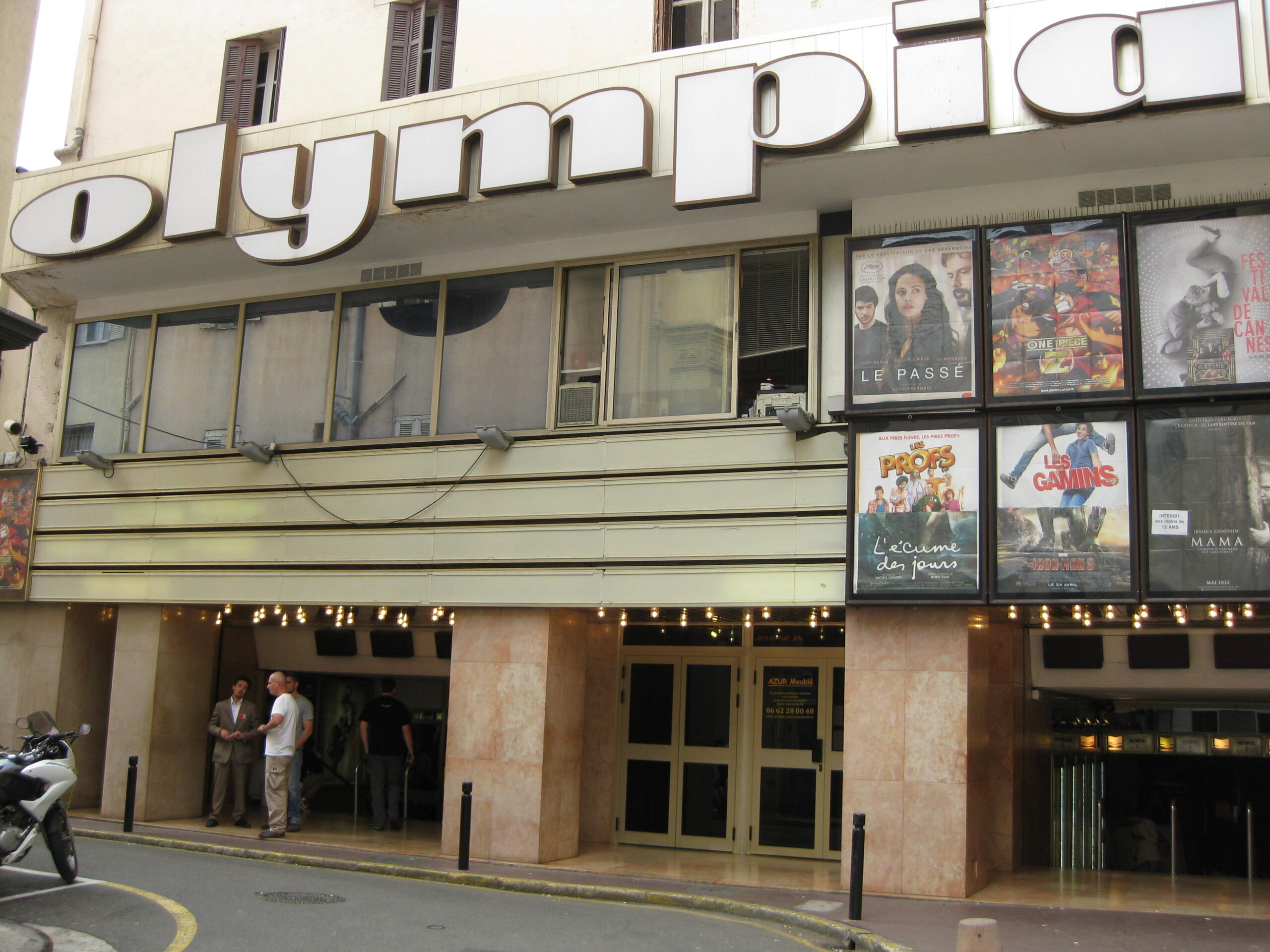CANNES, FRANCE — When you think of the Cannes Film Festival, you might
picture yachts, red carpets, paparazzi, and the coveted Palme d’Or. But
the festival as a whole is a complex mix, with several programs that run
in tandem alongside the renowned “official selection.” The Marché du
Film alone — the world’s largest film market — has 30 screens operating
throughout the city, and that’s just what’s listed. If you were a
programmer looking to fill out your entire season with coming-of-age
films, you could conceivably spend ten days at market theaters like the
one above watching nothing else.
The most prominent parallel
festivals are Directors’ Fortnight and Critics’ Week, each of which
operates independently of the main event. The Fortnight (or “Quinzaine,”
as we Americans who enjoy using French words begin calling it the
minute we hit the ground) has countercultural origins. It began in 1969,
styling itself as a more eclectic alternative to the film festival
proper, which famously shut down amid the protests of May 1968.
Over
the years, the Fortnight and the official selection have become rivals
for top talent. Screenings for the former take place not in a palatial
setting but a hotel basement, ten minutes’ walk from the main festival’s
Palais. The presentations have a minimum of pretense and often feature
lengthy Q&As (otherwise a rarity at Cannes). The Fortnight kicks off
tomorrow. One presumes each movie will be preceded by the same trailer
always shown, which touts past triumphs from Martin Scorsese, Spike Lee,
and Rainer Werner Fassbinder, to name just a few. This is a lineup
where discoveries are made. Last year’s selections included “Room 237”
and “Sightseers.”
It can be fun to ponder the tug-of-war among
Cannes’s various programming factions. Because — let’s face it — most
filmmakers probably want a Palme d’Or, they usually try for a
competition slot first, looking elsewhere only if they aren’t invited.
This year, the Fortnight opens with Ari Folman’s “The Congress,” adapted
from a novel by Stanislaw Lem (“Solaris”). The fact that it’s not
competing for the Palme seems like an ominous sign, given the rapturous
reception Folman’s “Waltz with Bashir” received here in 2008. But
sometimes the calculus is complicated. Reports suggest
that chief Cannes programmer Thierry Frémaux wanted “The Selfish
Giant,” directed by Clio Barnard (“The Arbor”), for the competition, but
for whatever reason didn’t wrest it back from his rival down the
street. Rumblings from the U.K. suggest the movie could hold its own
among Cannes’s strongest titles.
The other major parallel
festival is Critics’ Week, which takes place further east down the
Croisette — Cannes’s waterfront boulevard — and consists mainly of first
and second features. This year’s program, however, will be topped off
with “3X3D,” a 3-D omnibus film that includes segments by veteran
iconoclasts Jean-Luc Godard and Peter Greenaway. Godard never misses an
opportunity to employ an aesthetic device in an abrasive and bracingly
new way. What he’ll do with 3-D is one of Cannes 2013’s most tantalizing
prospects.
***
As for the competition, this year’s
edition features new movies by the Coen brothers, Alexander Payne,
Steven Soderbergh, Roman Polanski, and Nicolas Winding Refn. At a press
conference today, moderator Henri Behar asked jury president Steven
Spielberg why it’s taken so long for him to chair one of the world’s
most prestigious film events. Spielberg chalked it up to timing. “I’ve
been so consistently at work, especially in the spring months,
directing, that every time I’ve been approached to be on the jury I have
been busy working,” he said.
Reputed to have a competitive
streak, Spielberg claimed no qualms about judging colleagues’ films.
“We’re always sitting in kind of personal private judgment” of movies,
he noted, adding that he and his fellow jurors — who include Spielberg’s
Oscar rival Ang Lee, Nicole Kidman, and Christoph Waltz — are always
being judged themselves. Kidman described serving as a jury as her way
of “contributing back” to a festival that’s always treated her well, and
also fielded an inane question about whether her husband, Keith Urban,
gave her any tips for Cannes in light of his work as a juror on
“American Idol.”
As for Spielberg, Lee, and the still-fresh Oscar
duel between “Lincoln” and “Life of Pi,” the two men insisted there was
no bad blood after Lee’s win. “I worship him,” Ang Lee said of his jury
president. “I don’t know how he feels about me, but I worship him.”
Spielberg echoed the thought. “We’ve never ever been competitors — we’ve
always been colleagues,” he said. “I worship ‘Life of Pi,’ therefore I
worship Ang Lee as well.”
That said, Spielberg suggested he’s not
above persuading his fellow jurors to vote the way he wants. “I’m going
to have to look at the Sidney Lumet film ‘12 Angry Men‘ again as a
tutorial to prepare myself for the final day of deliberation,” he said.
Given the rumor that the director could screen films on his yacht rather
than in the traditional Grand Theatre Lumière, it might be best to
imagine “12 Angry Men” at sea.












